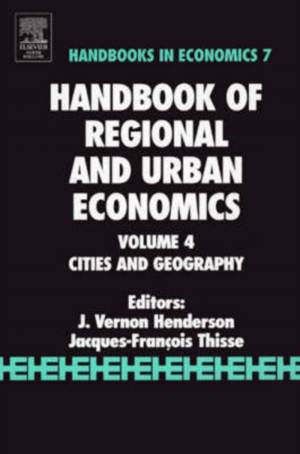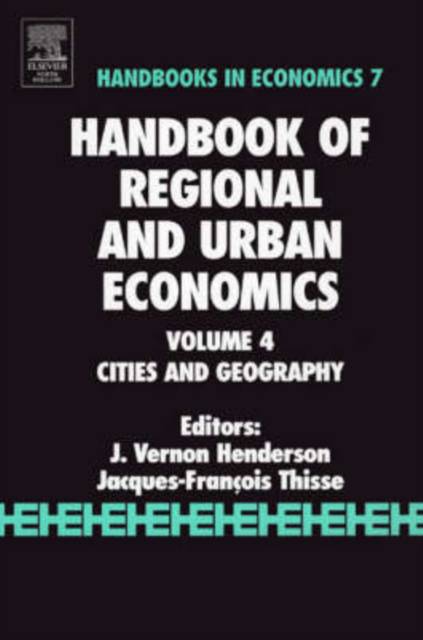
- Afhalen na 1 uur in een winkel met voorraad
- Gratis thuislevering in België vanaf € 30
- Ruim aanbod met 7 miljoen producten
- Afhalen na 1 uur in een winkel met voorraad
- Gratis thuislevering in België vanaf € 30
- Ruim aanbod met 7 miljoen producten
Handbook of Regional and Urban Economics
Cities and Geography Volume 4
Omschrijving
The chapters cover theoretical developments concerning the forces of agglomeration, the nature of neighborhoods and human capital externalities, the foundations of systems of cities, the development of local political institutions, regional agglomerations and regional growth. Such massive progress in understanding the theory behind urban and regional phenomenon is consistent with on-going progress in the field since the late 1960's. What is unprecedented are the developments on the empirical side: the development of a wide body of knowledge concerning the nature of urban externalities, city size distributions, urban sprawl, urban and regional trade, and regional convergence, as well as a body of knowledge on specific regions of the world--Europe, Asia and North America, both current and historical.
The Handbook is a key reference piece for anyone wishing to understand the developments in the field.
Specificaties
Betrokkenen
- Uitgeverij:
Inhoud
- Aantal bladzijden:
- 1020
- Taal:
- Engels
- Reeks:
- Reeksnummer:
- nr. 4
Eigenschappen
- Productcode (EAN):
- 9780444509673
- Verschijningsdatum:
- 21/07/2004
- Uitvoering:
- Hardcover
- Formaat:
- Genaaid
- Afmetingen:
- 168 mm x 246 mm
- Gewicht:
- 2072 g

Alleen bij Standaard Boekhandel
Beoordelingen
We publiceren alleen reviews die voldoen aan de voorwaarden voor reviews. Bekijk onze voorwaarden voor reviews.










